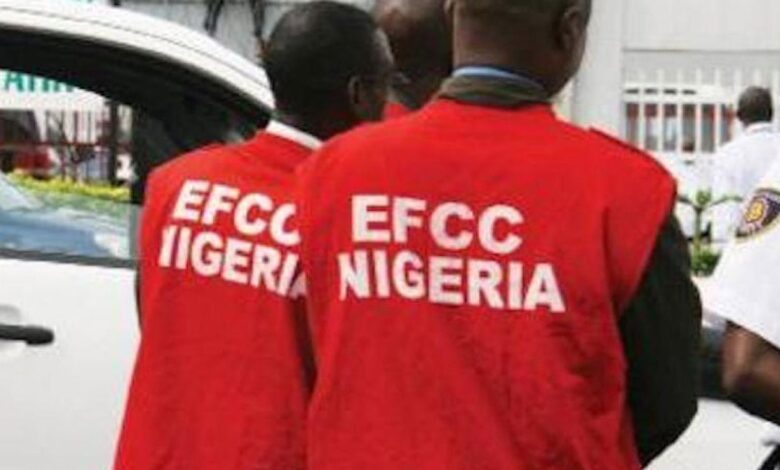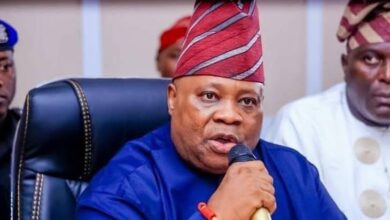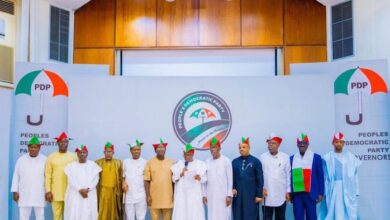16 States Challenge EFCC Amid Ongoing N776bn Fraud Investigations

Recently, it has been revealed that 16 Nigerian state governments have filed a lawsuit at the Supreme Court challenging the constitutionality of the laws establishing the Economic and Financial Crimes Commission (EFCC) and the Nigerian Financial Intelligence Unit (NFIU). The suit, marked SC/CV/178/2023, was originally initiated by the Kogi State Government, represented by Attorney General Muiz Abdullahi SAN. On Tuesday, 15 other states joined the case as co-plaintiffs. These states include Ondo, Edo, Oyo, Ogun, Nassarawa, Kebbi, Katsina, Sokoto, Jigawa, Enugu, Benue, Anambra, Plateau, Cross River, and Niger.
The states argue that the formation of the EFCC and NFIU violates constitutional provisions. Specifically, they claim that the establishment of the EFCC Act required the approval of the majority of state Houses of Assembly, which was not done. As a result, they contend that the agencies were created illegally. On Tuesday, a seven-member panel of Supreme Court justices, led by Justice Uwani Abba-Aji, granted permission for the consolidation of the case and set October 22 for the hearing.
Legal and Political Context
While the legal challenge touches on the broader issue of the constitutionality of federal agencies like the EFCC and NFIU, there are underlying factors that suggest this case is also politically motivated. For instance, the lawsuit comes amid an ongoing legal battle between the former Governor of Kogi State, Yahaya Bello, and the EFCC. The agency has accused Bello of financial misappropriation amounting to N110 billion. In January 2024, the EFCC also reopened money laundering cases involving N772 billion against 13 former governors and ministers, further adding fuel to the legal dispute.
Among those being investigated are two former governors of Ekiti State, Kayode Fayemi and Ayo Fayose; current Minister and former Zamfara State Governor, Bello Matawalle; and several other prominent figures such as former Enugu State Governors Chimaroke Nnamani and Sullivan Chime, former Nasarawa State Governor Abdullahi Adamu, and former Kano State Governor Rabiu Kwankwaso.
The EFCC has maintained that the legal actions taken by these states are a reaction to the commission’s effectiveness in its anti-corruption work. According to Dele Oyewale, the EFCC’s Head of Media and Publicity, “The concerted hostility the commission is experiencing is an appraisal of the work the commission is doing and its effectiveness.” He further emphasized that the courts would have the final say on the matter.
Conflicting Responses from the States
The reasons provided by the states involved in the lawsuit vary, and in some cases, officials have denied their participation altogether. For example, Oyo State Commissioner of Information, Dotun Oyelade, clarified that the state’s involvement was a matter of addressing perceived legal gaps in the EFCC’s statutes. According to Oyelade, Oyo State has always been committed to upholding the rule of law and ensuring that constitutional lacunae are addressed, irrespective of political affiliations.
Ogun State, however, distanced itself from the Kogi-led suit. Kayode Akinmade, the Special Adviser on Media and Strategy to the Ogun State Governor, explained that their legal action was focused solely on challenging NFIU policies that restrict the states’ access to funds. He denied that Ogun State had filed a suit challenging the constitutionality of the EFCC itself.
Similarly, Cross River State Commissioner for Information, Erasmus Ekpang, also denied the state’s involvement in the current case, noting that their participation was limited to a previous lawsuit concerning the NFIU, which was filed under the former administration of Governor Ben Ayade. Ekpang clarified that the case focused on whether the NFIU had the authority to investigate local government funds in the state.
The Plateau State Government also denied involvement in the lawsuit, with the state’s Commissioner for Information, Musa Ashoms, asserting that they had no position calling for the cancellation of the EFCC. Ashoms emphasized that the EFCC is a lawful creation, and the state believes that legal processes should be allowed to unfold.
In contrast, officials from other states involved in the lawsuit either refused to comment or were unaware of the details of the case. The Nasarawa State Attorney General and Commissioner for Justice, Labaran Magaji, declined to speak on the matter. Meanwhile, Katsina State Commissioner for Information, Bala Salisu, indicated that he was not informed about the case but promised to investigate further. As of the time of reporting, there was no official response from the Benue State Attorney General, despite efforts to reach him.
Implications of the Legal Challenge
The lawsuit raises significant constitutional questions about the powers of the federal government and the states, particularly concerning the establishment and authority of anti-corruption agencies like the EFCC and NFIU. While the states involved argue that the creation of these agencies bypassed necessary constitutional approvals, others see the case as a political move designed to weaken the EFCC’s ongoing anti-corruption efforts.
The outcome of this case could have far-reaching implications for Nigeria’s federal structure and the future of anti-corruption efforts in the country. If the Supreme Court rules in favor of the states, it could limit the power of the EFCC and NFIU, potentially weakening the country’s fight against corruption. Conversely, a ruling in favor of the agencies would affirm their legal standing and reinforce the federal government’s authority to create such institutions.
As the October 22 hearing approaches, all eyes will be on the Supreme Court to see how it navigates the complex constitutional and political issues at stake.



